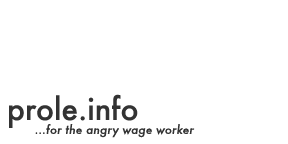 |
|
|---|---|
|
If you would like to translate any material on prole.info please get in touch by emailing: The following are a few things to remember when translating prole.info texts. Some of them are basic translation tips and some of them are specific to translating prole.info texts. Please take a look before translating.
Thanks in advance for the hard work!
|
|
